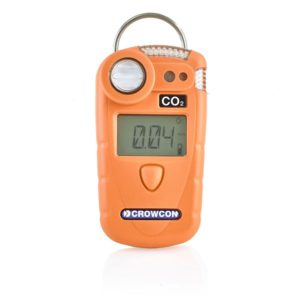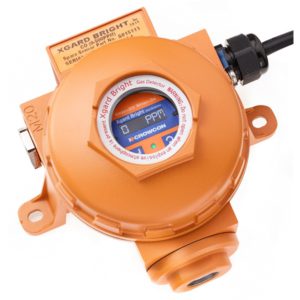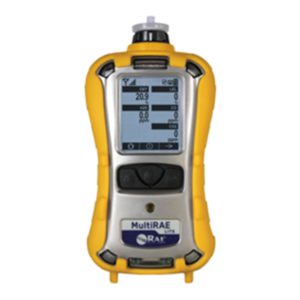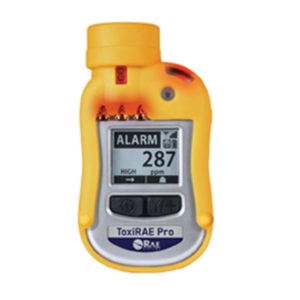Hydrogen Detection
Hydrogen Gas Detectors – Portable gas detectors from a1-cbiss for the detection of hydrogen
CAS Number: 7222-84-1
Properties
Hydrogen is the lightest element in the periodic table and the most abundant chemical substance in the universe. At standard temperature and pressure, hydrogen is a non-toxic odourless, tasteless, colourless, and highly combustible gas.
Dangers
Hydrogen is explosive at high concentrations. Despite its tendency is to burn rather than to explode, Hydrogen is extremely flammable. It takes 14 times less energy to ignite hydrogen than it does to ignite natural gas. Hydrogen does pose an added danger to first responders in the event of a fire because a hydrogen flame is virtually invisible in daylight.
An abundance of gathered hydrogen in areas that are not well ventilated creates an oxygen-deficient environment that can cause headaches, depression of the senses, unconsciousness or even an asphyxiation risk to people in the area.
Hydrogen is usually stored and transported in liquified hydrogen tanks. The last concern is that because it is compressed, liquid hydrogen is extremely cold. If hydrogen should escape from its tank and come in contact with skin it can cause severe frostbite, or even the loss of extremities.
Where is it found?
Hydrogen is non-toxic, but in indoor environments like battery storage rooms, hydrogen may build up and cause asphyxiation by displacing oxygen. This danger can be offset to some extent by adding odorants to hydrogen fuel, giving it an artificial smell and alerting users in case of a leak. But as hydrogen disperses quickly, the odorant is unlikely to travel with it. Hydrogen leaking indoors quickly collects, initially at ceiling level and eventually fills up the room. Therefore, the placement of gas detectors is key in early detection of a hydrogen leak.
How do you detect and measure Hydrogen?
Until now, the only option has been Pellistor detection, with limitations around accuracy and more susceptible to poisoning. Now, The MPS™ sensor is tailor-made for Hydrogen detection. With the MPS™ sensor, only one device is needed saving space without compromising on safety.
Discover the right Hydrogen detection solution for you
There are several types of sensors used for gas detection. The choice of gas sensor depends on:
- What the purpose of detection is
- Whether the gas detector is fixed or portable
- Whether the detector is point or open path
- The expected range of concentration
- The presence of other gases that may affect readings or damage the sensor
These systems can measure flammable and toxic gases, report their presence and activate alarms or equipment. You should select your gas detection solution based on the number and type of gas sensors needed and your display and certification requirements.
Hydrogen gas products
Gas detection equipment can take many forms from portable to fixed detectors, and sample systems which enable hydrogen detection to occur without a person having to enter the area being monitored.
Showing all 4 resultsSorted by popularity








